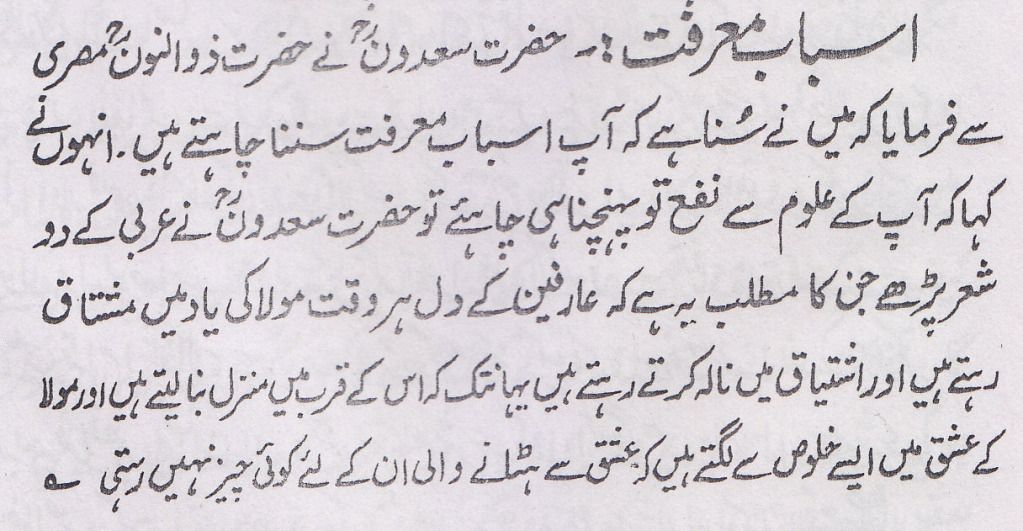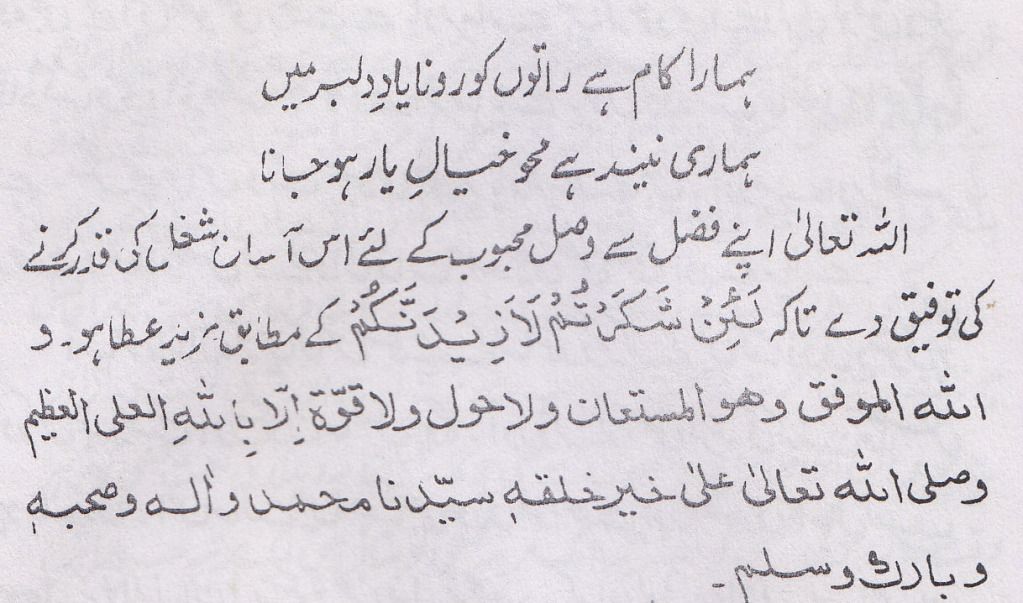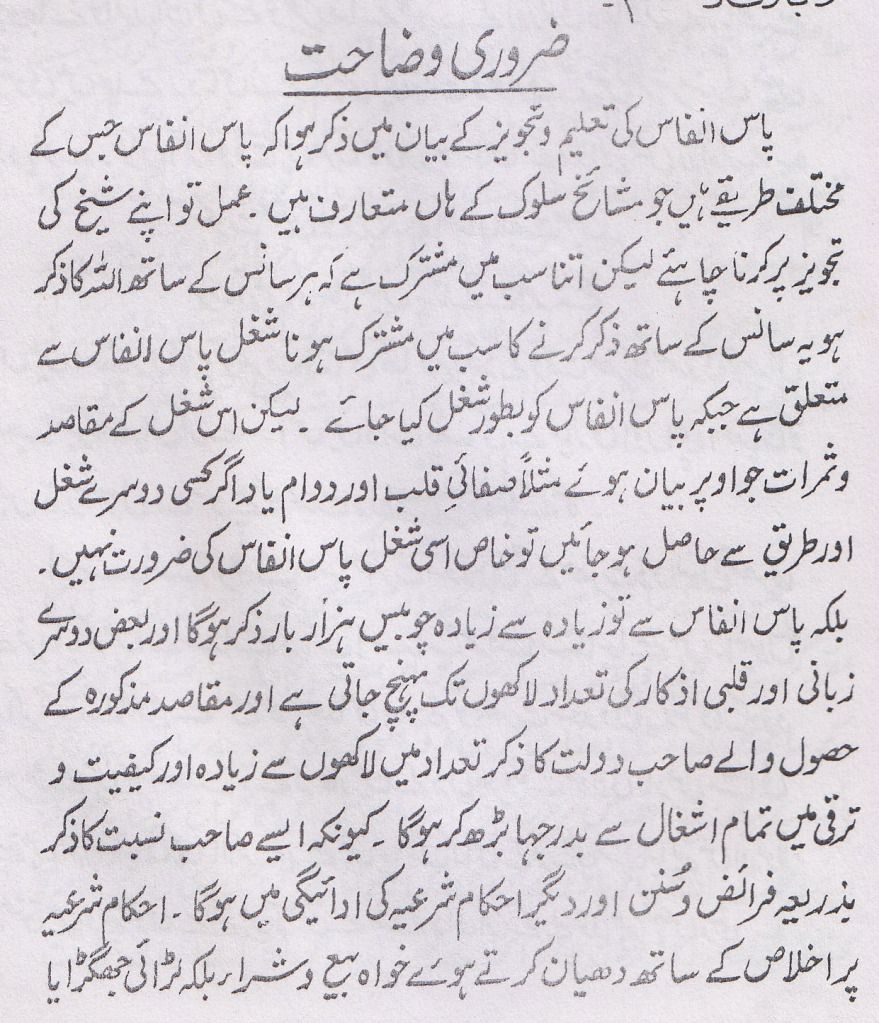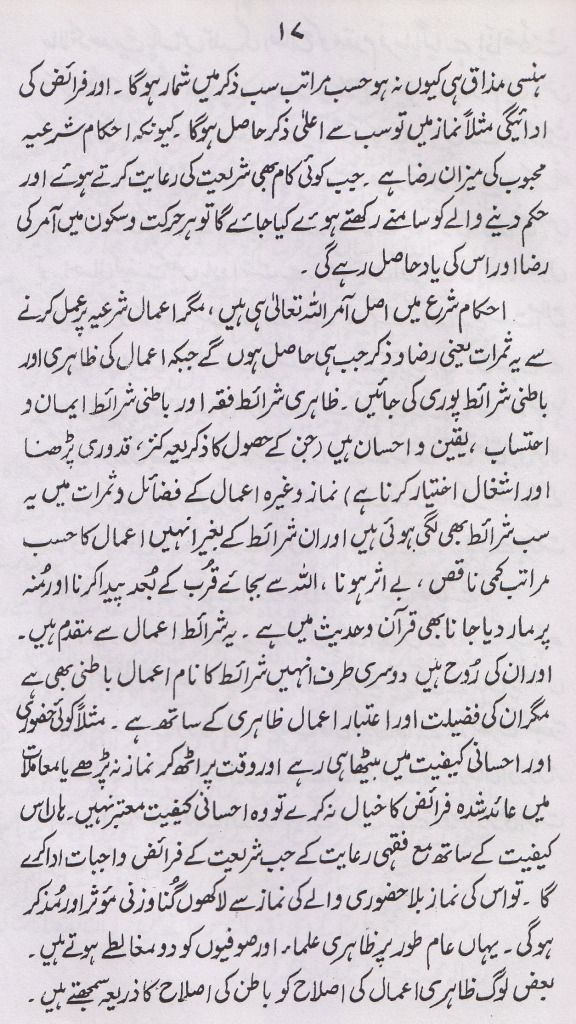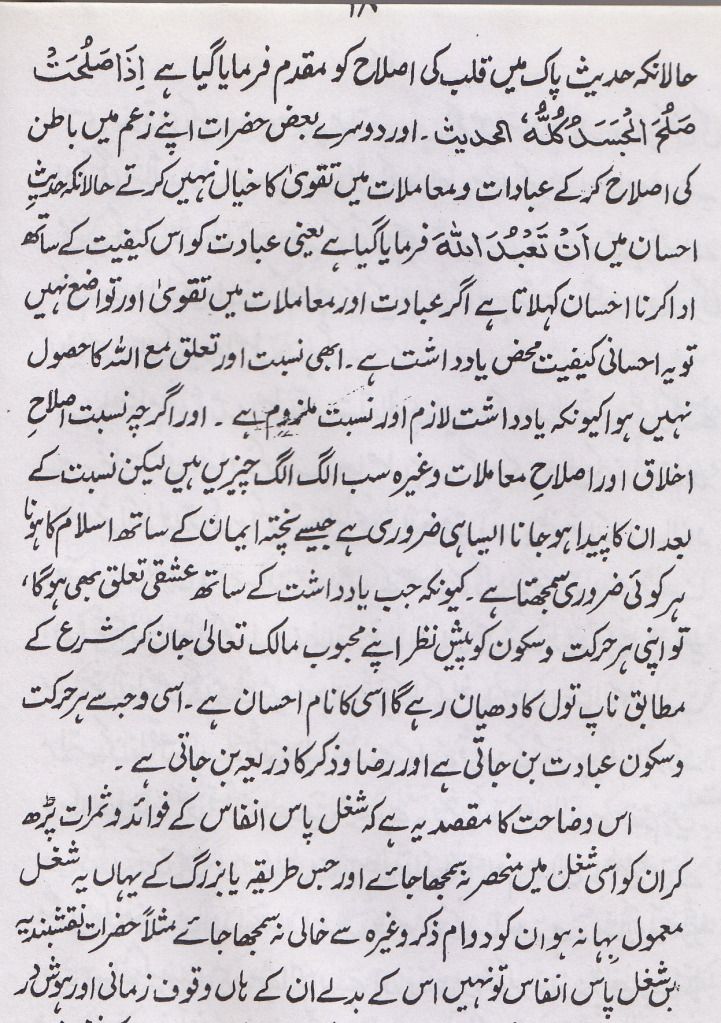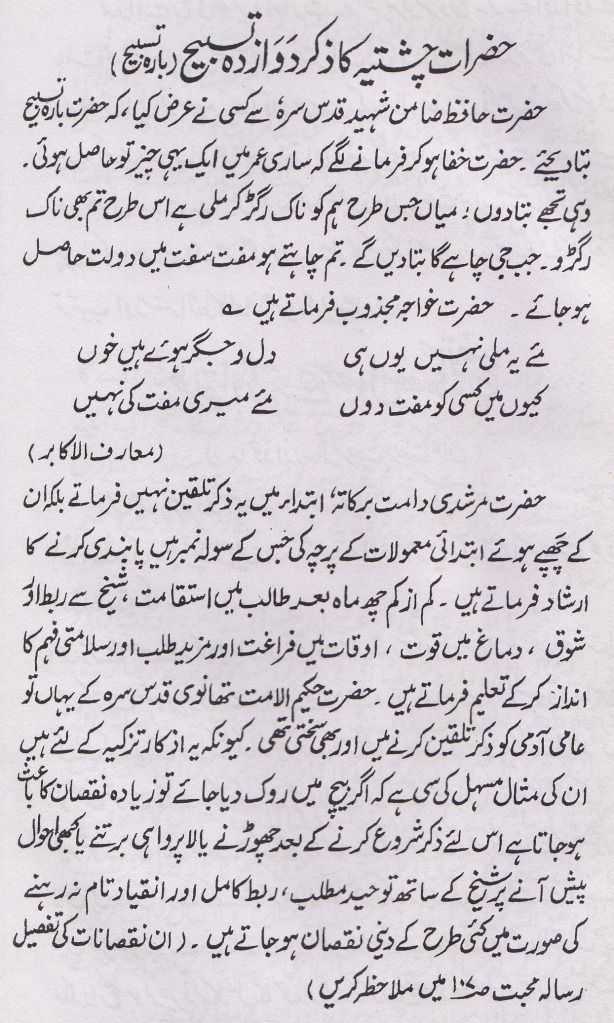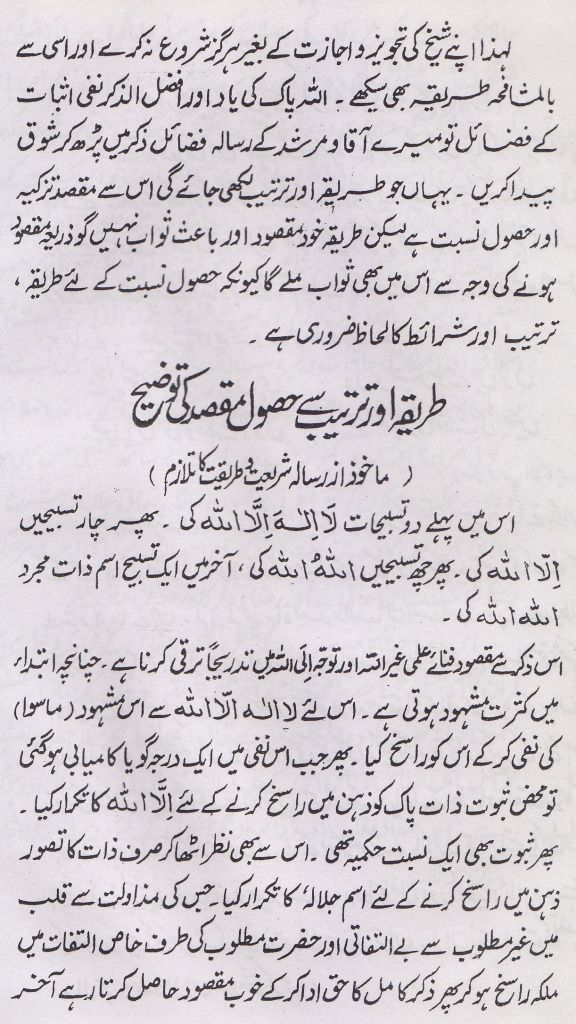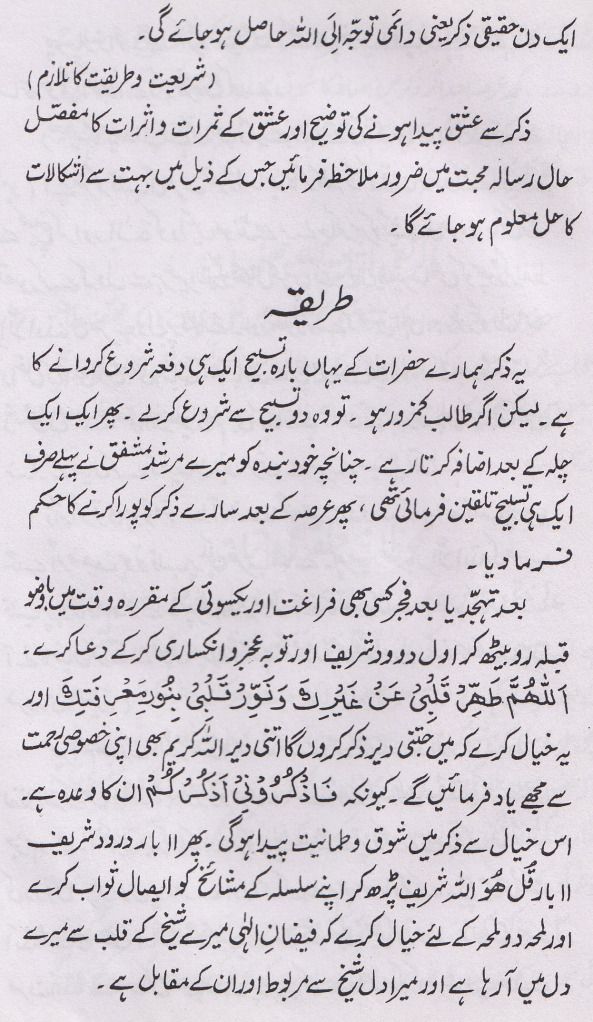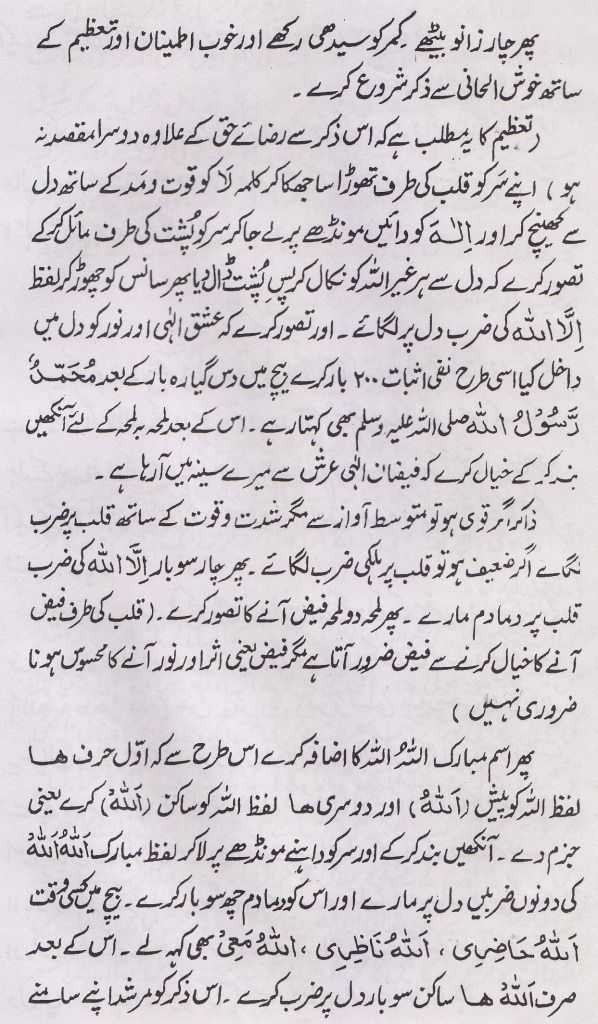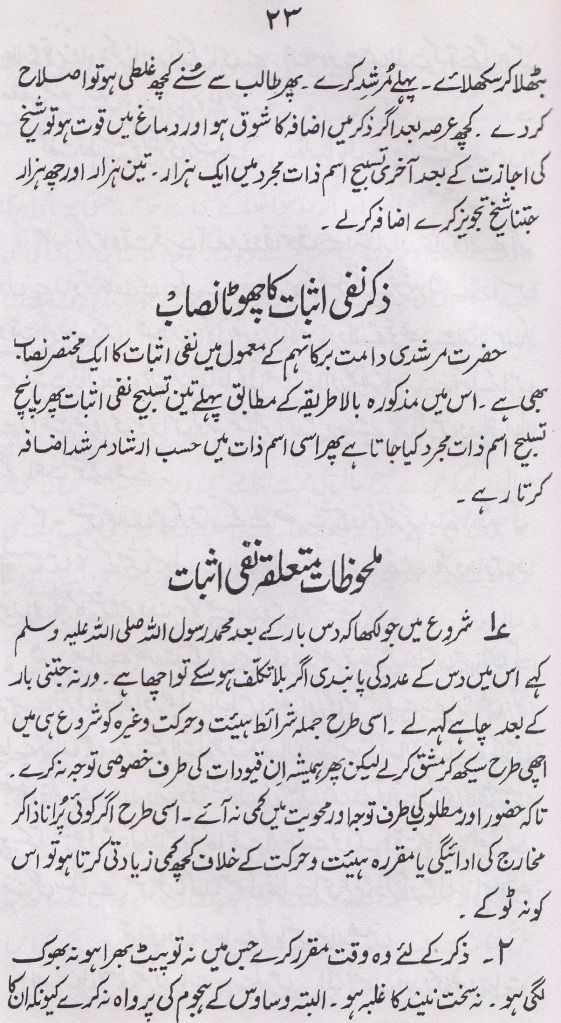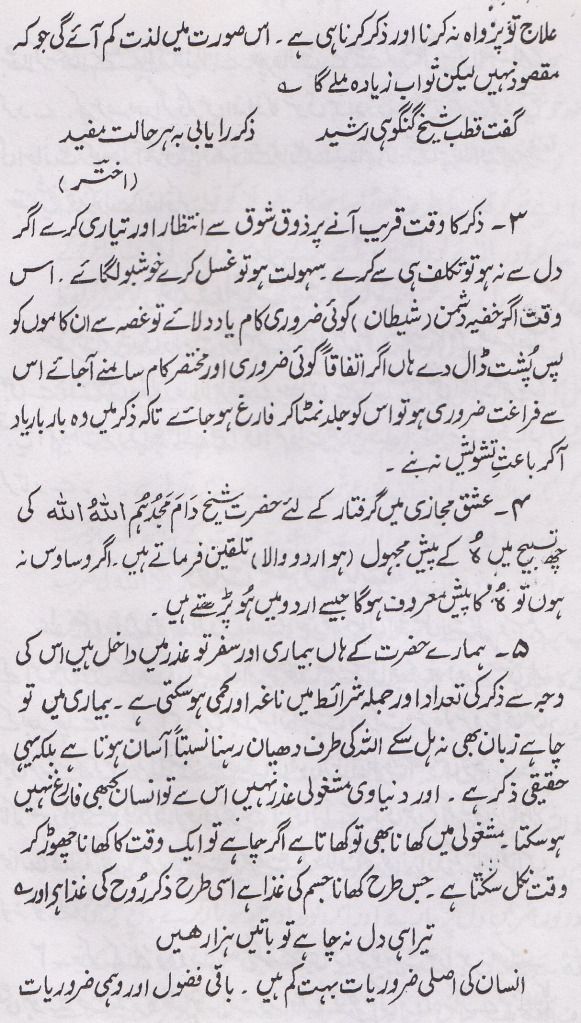
Restoring The Bara Tasbih & Paas Anfas Thread from Sunniforum.com
At the outset the following thread was meant to be a discussion on the stages of Paas Anfas and the Bara Tasbeeh of the Chishtiya which progressed to the translation of the book Ibtidayi Adhkar wa Asghal by Hazrat Sufi Iqbal Madani رحمة الله عليه who was also known as the 'Pen' of Hazrat Shaikh ul Hadith Maulana Muhammed Zakariya sahab Kandhelwi رحمة الله عليه & was also amongst his elite khulafa..
Kindly note that إن شاء الله The thread could prove especially beneficial for :
1) English speaking Mashaikh for whom the works of our Deobandi Shuyukh are out of reach..
2) Mureedin who have been already taught the Tasbeeh by thier respected Shuyukh..
3) Those Saalikeen who are on some prescribed Adhkar shall gain by useful hints provided in this book إن شاء الله..
4) Those who want to learn about the Adhkar prescribed by our beloved Hazrat Shaikhul Hadees Maulana Zakariyya sahab kandhelwi رحمة الله عليه
Also know that the Adhkar & Asghal mentioned are only meant for those who have been given Permission (ijazah) (or prescribed) by their respective Shuyookh and are NOT meant as a DIY exercise for anyone.
This is the Book..
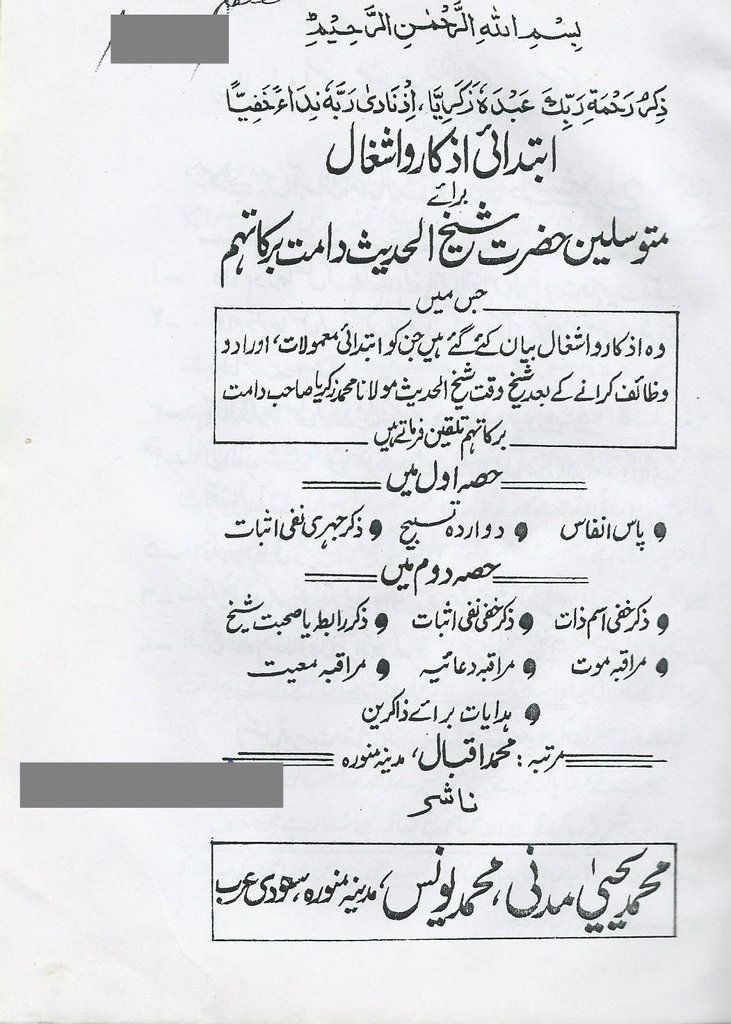





 remarked that 'I like his habit that he never wastes any time', that being always pre-occupied had become the nature of hazrat."
remarked that 'I like his habit that he never wastes any time', that being always pre-occupied had become the nature of hazrat."
